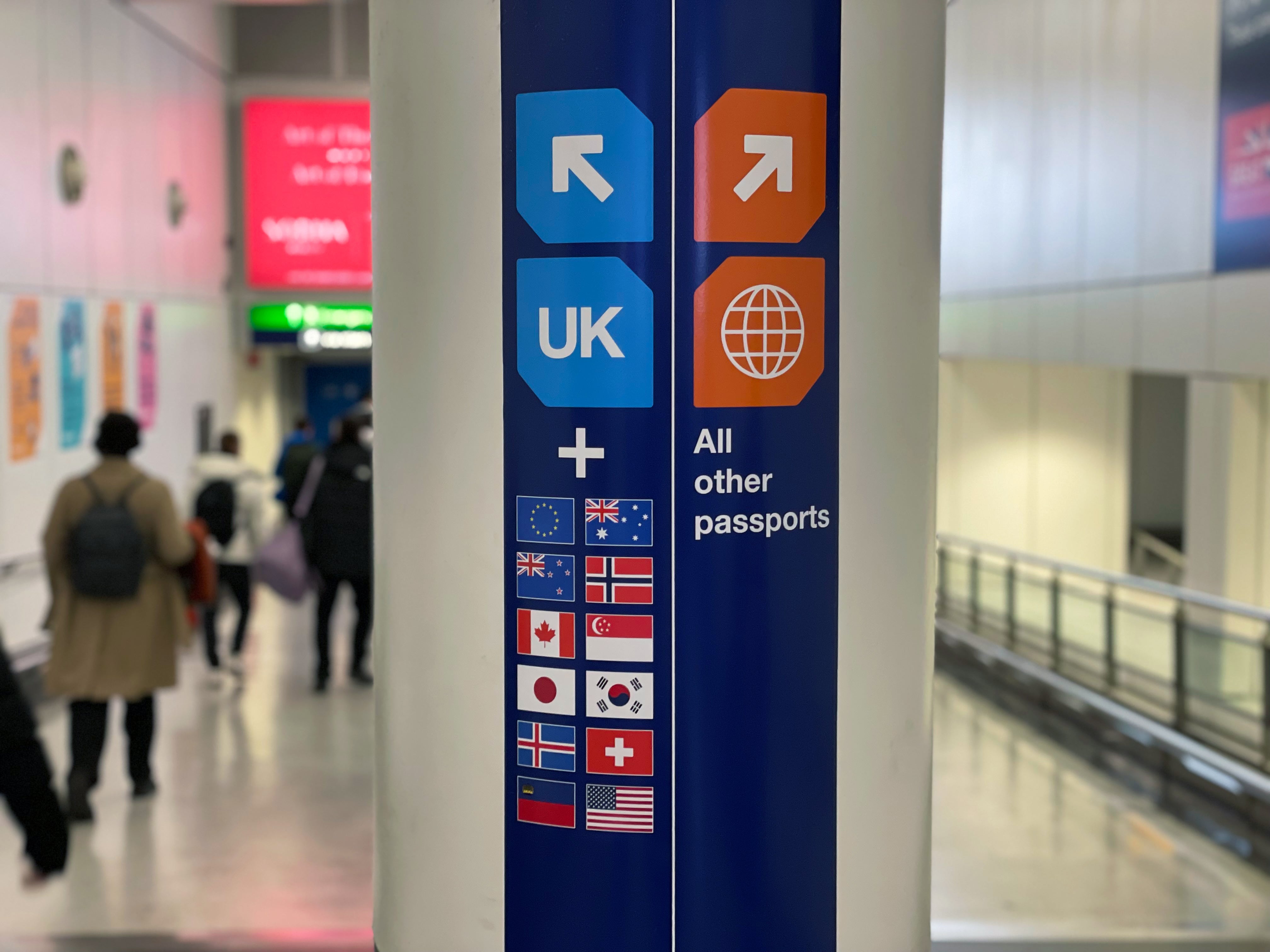Can we afford not to introduce digital IDs?
After 40 Labour MPs call for the introduction of online identity cards, Ryan Wain of the Tony Blair Institute says the scheme would be such an effective deterrent to small-boat Channel crossings and benefit fraud that it would pay for itself within three years

Britain is trying to manage 21st-century challenges with 20th-century tools. If we’re serious about controlling borders, cutting benefit fraud and fixing broken public services, then we need a modern digital identity system – fast.
The 40 Labour MPs who wrote an open letter to the prime minister calling for its implementation get it. Their intervention comes just months after the shadow home secretary Chris Philp became the first frontline Conservative politician to back this idea. It is no longer an issue of left versus right, but one of right versus wrong.
That a digital ID is central to reimagining a state desperately in need of it is news to no one, but there are serious reasons why this idea’s time has come.
Last year, 1.2 million people came to Britain – and those are just the ones we could count. Whatever your view on how many migrants the UK should accept, one thing is clear: we need control. Digital ID is part of the solution.
Imagine the moment someone lands on our shores, whether by small boat or through another route – they’re issued a digital ID straight away that verifies their credentials and becomes the single source of truth for their time in the UK. It speeds up processing, tackles the backlog, and instantly clarifies whether that person is eligible to work, use the NHS or claim benefits. That information doesn’t just improve immigration control but acts as a deterrent to life-endangering crossings. At the moment, the appeal of being able to slip into the informal labour market is just too compelling. We must put a stop to it.
Digital ID isn’t a silver bullet, but without it, we’re trying to manage our borders with one hand tied behind our backs. It’s also the foundation for a modern government. For 50 years, our public services have followed a one-size-fits-all model: an education system that struggles to cater for special needs; a national sickness service, not a national health one, slowly shifting toward prevention. But people today expect services that are personalised and seamless – just like they get from the best private sector innovators. And that starts with data.

This is where the same tired arguments kick in. Critics complain that digital IDs would be just another way for the government to keep information on people. Yes, privacy matters, and democracy demands that we debate the trade-offs. But we also live in the real world. We use Amazon to shop, mobile phones to bank, Google Maps to navigate, and apps to book everything from taxis to takeaways – all using our data. Even Big Brother Watch, one of the loudest critics of digital ID, lists nine different privacy policies on its own website – most of them from US tech companies. Technology already shapes our lives in countless ways. Without a digital ID, we are denying people the same convenience, efficiency, and control from their own government.
It's a political imperative, too. The New Britain Project recently revealed how people's frustration with broken systems – from GP bookings to council websites – is driving voters away from mainstream political parties. As they perceive a political status quo while experiencing decline, they will turn to insurgent, populist parties with little in the way of solutions. A digital ID can be the underpinning of an alternative offer, the start of a complete reimagining of the state.
Yet Britain is falling behind. Countries such as Estonia, Italy, India, and the EU as a whole are embracing digital identity as a core part of modern governance. These systems are making life easier for citizens while giving governments the tools needed to be more agile and responsive.
The total cost to design and implement digital ID in the UK would be around £1bn, with annual running costs of about £100m. It would pay for itself within three years, and after that, every saving is a bonus. Our estimates show that a national digital ID could generate at least £2bn in annual value. By tightening verification, we could reduce benefit fraud – currently estimated at £10bn – and save another £350m by cutting down on ID-related financial crime.
It’s also deliverable – fast. The UK already has a head start with the One Login system. By the end of this parliament, every citizen could be signed up: two years to legislate and build the tech, two years to roll it out.
Politics is still in the business of finding solutions. Now it's over to the government to deliver.
Ryan Wain is executive director of the Tony Blair Institute






Join our commenting forum
Join thought-provoking conversations, follow other Independent readers and see their replies
Comments